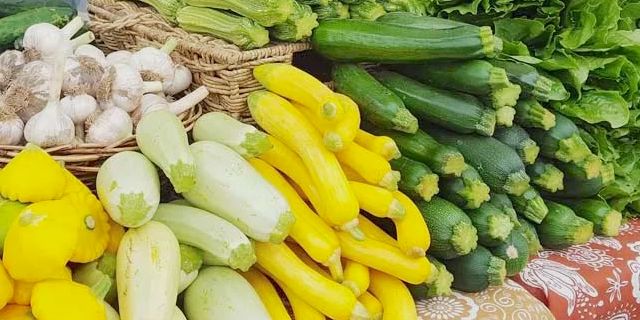Oregon farm stand bill shelved in lieu of new regulations
Published 10:37 am Thursday, March 20, 2025

- House Bill 3133 would revise the legal language used to describe farm stands and what they can sell in “exclusive farm use” zones, such as “cooked or prepared food items for on-site consumption that prominently feature and advertise farm crops or livestock” produced on the property. (Capital Press file photo)
Legislation intended to clarify Oregon’s rules for farm stands will likely be shelved while state regulators try ironing out the land use ambiguities facing such operations.
Farm stands have attracted controversy for years, with critics arguing certain retail outlets have exceeded what’s meant to be permissible in agricultural zones.
A distinction must be drawn between legitimate agritourism, which supplements revenues from crop and livestock production, and tourism on agricultural lands, which effectively uses farms as a front, said Jim Johnson, working lands policy director for the 1000 Friends of Oregon nonprofit.
“That’s a big part of the problem we’re dealing with, in terms of, is the tail wagging the dog?” Johnson said.
House Bill 3133 would revise the legal language used to describe farm stands and what they can sell in “exclusive farm use” zones, such as “cooked or prepared food items for on-site consumption that prominently feature and advertise farm crops or livestock” produced on the property.
The proposal is meant to clear up existing regulations that have been subject to conflicting interpretations, said Dave Hunnicutt, president of the Oregon Property Owners Association, which is representing agritourism operators who’ve chafed against certain restrictions.
“There’s a fair bit of uncertainty with the way the statute is written and the rules are done,” Hunnicutt said.
During a recent legislative hearing on the bill, however, lawmakers and stakeholders involved in negotiations over farm stands agreed the matter should first be referred to the state’s Department of Land Conservation and Development.
The commission that oversees DLCD will undertake a rule-making process this month to answer several questions about farm stand activities, such as selling prepared foods on-site and holding promotional events within structures, said Alyssa Bonini, legislative and policy analyst for the agency.
The proposed rules are expected to be the subject of a public meeting in late September and would potentially be adopted by the commission a month later, Bonini said.
It’s possible not all the issues reviewed by DLCD can be resolved through rule-making and may require changing the underlying statutes during a future legislative session, she said.
Starting with regulatory changes is preferable, though, as it allows for more attention to detail than is possible during the legislative session, said Johnson of 1000 Friends.
“This really needs to go to rule-making to get this correct,” Johnson said.
The rule-making discussions should encompass agricultural buildings used as farm stands, as some were exempt from building codes with the understanding they wouldn’t be open to the public, he said.
The Oregon Property Owners Association would like regulatory revisions to address how to mitigate road congestion and other impacts on surrounding farms, Hunnicutt said.
“Our folks don’t want to be a burden or a problem for their neighbors, and traffic is one of the things we hear most about,” he said.
An update is needed to regulations that ensure a farm stand serves an agricultural purpose, which is currently achieved by limiting income from promotional activities and incidental items, Hunnicutt said.
“Counties have found that’s hard to enforce and our folks think there are better options,” he said.
Friends of Family Farmers, a nonprofit representing small growers, believes these income restrictions should be preserved to make certain agriculture is the “backbone” of farm stand operations, said Alice Morrison, the group’s co-director of policy and development.
“We think that is the way to continue to center agricultural production,” she said.





